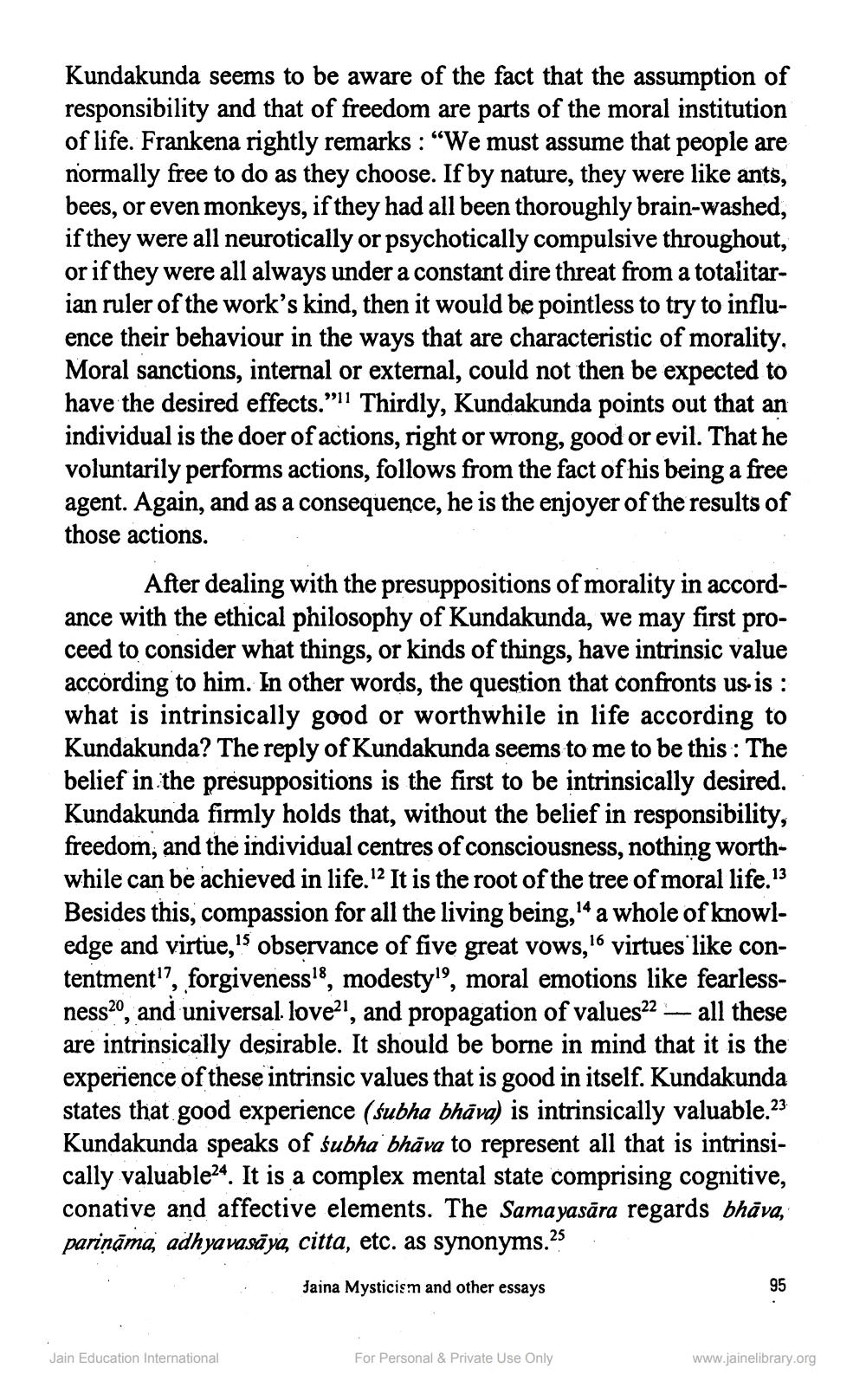________________
Kundakunda seems to be aware of the fact that the assumption of responsibility and that of freedom are parts of the moral institution of life. Frankena rightly remarks : “We must assume that people are normally free to do as they choose. If by nature, they were like ants, bees, or even monkeys, if they had all been thoroughly brain-washed, if they were all neurotically or psychotically compulsive throughout, or if they were all always under a constant dire threat from a totalitarian ruler of the work's kind, then it would be pointless to try to influence their behaviour in the ways that are characteristic of morality, Moral sanctions, internal or external, could not then be expected to have the desired effects.”ll Thirdly, Kundakunda points out that an individual is the doer of actions, right or wrong, good or evil. That he voluntarily performs actions, follows from the fact of his being a free agent. Again, and as a consequence, he is the enjoyer of the results of those actions.
After dealing with the presuppositions of morality in accordance with the ethical philosophy of Kundakunda, we may first proceed to consider what things, or kinds of things, have intrinsic value according to him. In other words, the question that confronts us.is: what is intrinsically good or worthwhile in life according to Kundakunda? The reply of Kundakunda seems to me to be this: The belief in the presuppositions is the first to be intrinsically desired. Kundakunda firmly holds that, without the belief in responsibility, freedom, and the individual centres of consciousness, nothing worthwhile can be achieved in life. It is the root of the tree of moral life.13 Besides this, compassion for all the living being, 14 a whole of knowledge and virtuels observance of five great vows, 16 virtues like contentment", forgiveness18, modesty'', moral emotions like fearlessness20, and universal. love, and propagation of values22 — all these are intrinsically desirable. It should be borne in mind that it is the experience of these intrinsic values that is good in itself. Kundakunda states that good experience (śubha bhāva) is intrinsically valuable.23 Kundakunda speaks of śubha bhāva to represent all that is intrinsically valuable24. It is a complex mental state comprising cognitive, conative and affective elements. The Samayasāra regards bhāva, parināma, adhyavasāya, citta, etc. as synonyms.25
Jaina Mysticism and other essays
Jain Education International
For Personal & Private Use Only
www.jainelibrary.org




